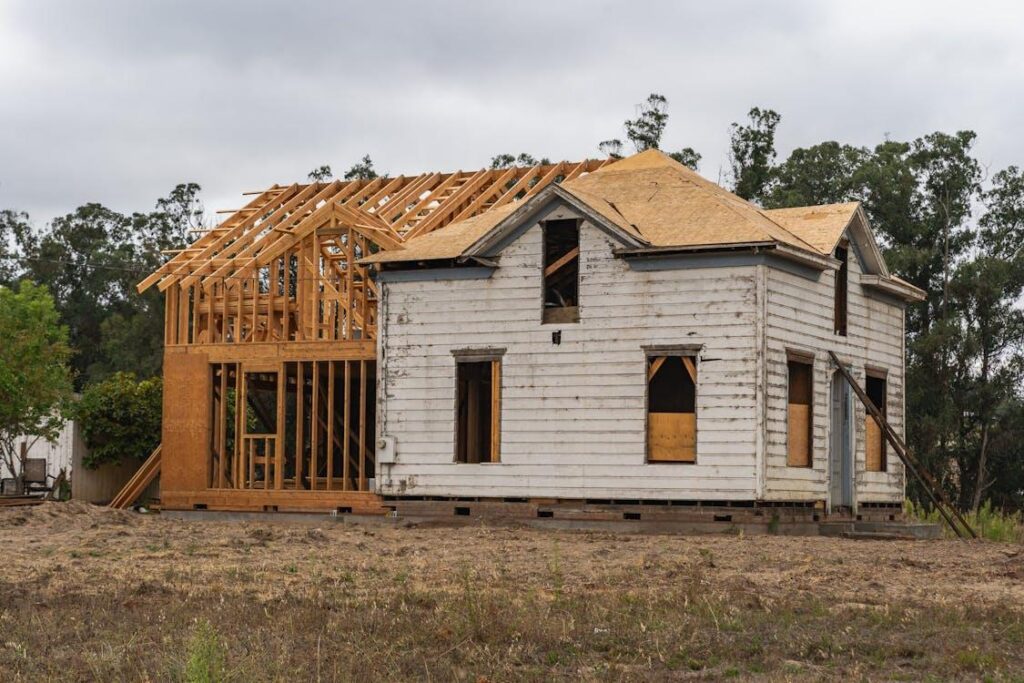Securing financing for a building project isn’t as simple as walking into a bank with blueprints in hand. Lenders carefully evaluate which developments are worth funding, and not every idea makes the cut. From single-family homes to large-scale commercial complexes, only certain types of projects qualify for a new construction loan.
Knowing what lenders prioritize — and why some projects are rejected — can save borrowers time, money, and frustration. This guide explains the kinds of developments that typically get approved, the factors that influence lender decisions, and how you can prepare your project to meet eligibility requirements.
Residential Projects That Often Get Approved
For many borrowers, residential builds are the first projects that come to mind when considering a construction loan. Lenders are generally open to financing these:
- Single-Family Homes:One of the most common loan approvals, especially if the borrower intends to live in the house after completion.
- Multi-Family Units (Duplexes, Triplexes, Quadplexes):These properties generate rental income, making them attractive to lenders as long as the market shows steady demand.
- Tear-Downs and Rebuilds:If you’re replacing an old structure with a completely new one, it can qualify, provided you have the necessary permits and plans.
Why lenders approve them: Residential housing is often seen as a stable investment. Borrowers who live in the property or rent it out provide lenders with repayment security.
Commercial Projects That Qualify
New construction loans aren’t just for homes. Businesses also use them to build commercial spaces that generate revenue. Lenders often approve loans for:
- Office Buildings:Especially when tenants are pre-leased, which shows lenders guaranteed income.
- Retail Centers:From shopping plazas to stand-alone stores, these projects qualify when backed by strong market data.
- Hotels and Hospitality Developments:With tourism or business travel backing the project, hotels can be solid candidates.
- Industrial and Warehousing Facilities:Logistics and storage spaces are considered long-term, income-producing investments.
Why lenders approve them: Commercial projects that demonstrate clear profitability and tenant demand are less risky, especially when backed by leases or feasibility studies.
Mixed-Use Developments
Mixed-use properties — where retail, commercial, and residential spaces share the same development — are gaining popularity in urban markets. For example, a building with apartments on top and shops or restaurants on the bottom often qualifies.
Why lenders approve them: They diversify income sources, which reduces financial risk and increases the likelihood of steady loan repayment.

Major Renovations and Rebuilds
Not every renovation qualifies for a construction loan. A simple kitchen remodel or cosmetic update won’t cut it. However, if the project involves significant structural work, lenders may view it as new construction.
Examples include:
- Rebuilding an entire property from the ground up.
- Converting a warehouse into modern apartments.
- Expanding a structure with large-scale additions.
Why lenders approve them: Major renovations increase the property’s value significantly and often change how it can be used, making it similar to a new build.
Specialty and Infrastructure Projects
Some specialty projects also qualify for new construction loans, particularly when they’re tied to larger developments or community needs.
Examples include:
- Community Infrastructure:Roads, utilities, and amenities that support a housing or commercial project.
- Educational or Medical Facilities:Schools, clinics, and hospitals often qualify if backed by local demand.
- Green Construction:Eco-friendly housing or energy-efficient commercial buildings are becoming more attractive to lenders, especially with government incentives.
Why lenders approve them: These projects meet public or regulatory needs, often with strong support from investors or local authorities.
What Lenders Look For Across All Projects
Even if your project type fits the list, lenders still need proof it’s worth funding. Common requirements include:
- Detailed Construction Plans:Clear blueprints, timelines, and contractor agreements show feasibility.
- Accurate Budgets:Lenders want realistic cost estimates, including buffers for unexpected expenses.
- Borrower’s Credit and Financial Health:While the project matters, your financial standing influences approval.
- Equity Contribution:Most lenders require you to put in 20–30% of the project’s cost.
- Exit Strategy:For income-producing properties, lenders expect repayment plans through rent, resale, or refinancing.

Projects That Usually Don’t Qualify
It’s equally important to know what lenders generally avoid:
- Cosmetic Renovations:Small upgrades like painting or landscaping don’t qualify.
- Unpermitted Builds:Without zoning or building permits, lenders won’t consider funding.
- Speculative Projects Without Demand:If there’s no market study or proof of demand, approval is unlikely.
- Overly Risky Ventures:Projects with untested designs or no revenue plan are almost always rejected.
How to Improve Your Chances of Approval
If your project qualifies, preparation is the next big step. Here are ways to strengthen your application:
- Work With Licensed Contractors:Lenders prefer experienced professionals with a strong track record.
- Conduct Market Research:Especially for commercial projects, proving demand through feasibility studies is key.
- Boost Your Finances:A solid credit score, strong savings, and willingness to provide equity make you a safer bet.
- Organize Documentation Early:Have all blueprints, permits, contracts, and financial records ready before applying.
Insula Capital Group: Turning Plans Into Reality
When it comes to construction financing, working with the right lender makes all the difference. Insula Capital Group specializes in helping borrowers secure funding for a wide range of residential and commercial projects.
With flexible lending programs, competitive terms, and a commitment to personalized service, Insula Capital Group ensures that qualified projects don’t just remain blueprints — they become reality.
If you’re planning a new build, expansion, or redevelopment, connect with Insula Capital Group today to explore financing solutions designed to match your project’s needs.




